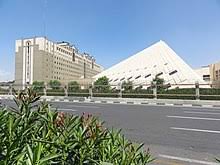A day after Supreme Leader Ali Khamenei’s speech, debates emerged among the various political groups and factions over how to interpret his message.
The Speaker of the Parliament Ghalibaf said today: “Yesterday, the Supreme Leader made a clear and explicit statement on negotiations, which defines the consensus. My expectation and demand are that the president and his government colleagues align their actions with these directives and move forward accordingly.”
Ghalibaf recognized internal divisions on the issue, warning against framing the debate as a simple “yes or no” to negotiations within the country’s political landscape.
Reportedly (Iran’s parliament speaker backs Khamenei’s rejection of US talks | Iran International) Ghalibaf said the Trump administration has sent a written message to Iran calling for the full disarmament of the Islamic Republic. The words of Ghalibaf were indeed unambiguous: “The issue is not nuclear anymore. They speak of nuclear, missile, conventional and unconventional weapons; these are meant to disarm the Islamic Republic.”
In addition, rumors emerged during the day that, as Ghalibaf mentioned, Trump sent a direct message to Iran asking to “give up all conventional weapons and the entire nuclear program” to sign a deal. However, after few hours, Ghalibaf clarified that he was referring to the document signed by Trump and there was not any message sent to Teheran.
It is not clear how the rumors spread. Some iranians argue that the comments of Ghalibaf could have stimulated the narrative at a moment of great confusion with mixed messages coming from the various factions and political groups.
On the same day also Foreign Minister Dr Araghchi intervened saying in one interview that even though lifting sanctions requires negotiation (which confirms talks are needed) that will not happen “under maximum pressure policy”. Moreover, Iran, Dr Araghchi said: “ will never come to the negotiating table from a position of weakness”.
The words used by Araghchi seems to confirm the interpretation given by most analysts (including myself), that yesterday Khamenei did not close the door to the talks and are consistent with what sources in Teheran told the author on the issue.
Inside Iran, Hardliner and ultra-hardliner media outlets and politicians are adamant that Khamenei’s speech unequivocally banned any response to President Donald Trump’s proposal to hold direct negotiations with his Iranian counterpart (Iranian political factions split over Khamenei’s rejection of US talks | Iran International).
IRGC linked Javan newspaper is the most vocal on highlighting this narrative, by taking the opportunity also to slam the Pezeshkian Government, which should align with the “new directives of the SL” and this “to safeguard national unity”.
Along the same line Shariatmadari, the renowned Director of the hardline newspaper “Kayhan”, speaking in one TV interview, said today “Trump has called for surrender, not negotiation”.
On the other hand journalists and politicians close to the reformist camp believe that Khamenei did not close the door to the talks with Trump but merely pushed for talks to focus on resolving Iran’s problems, particularly sanctions relief, as Abdolreza Davari, a renowned journalist once close to Ahmadinejad and today supporter of Ghalibaf and then Pezeshkian, says.
Former reformist lawmaker Akbar Alami believes that Khamenei in reality asked securing guarantees from Trump that any potential agreement would not be abandoned, as happened in 2018. Alami recalled that Khamenei had previously opposed negotiations during three speeches in 2012 and 2013, at a time when secret talks with the US were taking place in Oman.
The feeling at the moment is that there is not a single “narrative” emerging from the internal debates among the groups part of the political “spectrum”, with hardliners, ultraconservatives and radicals appearing more interested to “settle the scores” with the reformists rather than elaborating a unified strategy on the content of the eventual talks with the US.
In any case, it is likely that the leadership has already clear the terms of the debate, even more so if the rumors of the alleged initial contacts with Trump administration representatives (i.e. Elon Musk meeting with Amb. Iravani in NY) turn out to be true.
Time will tell.
